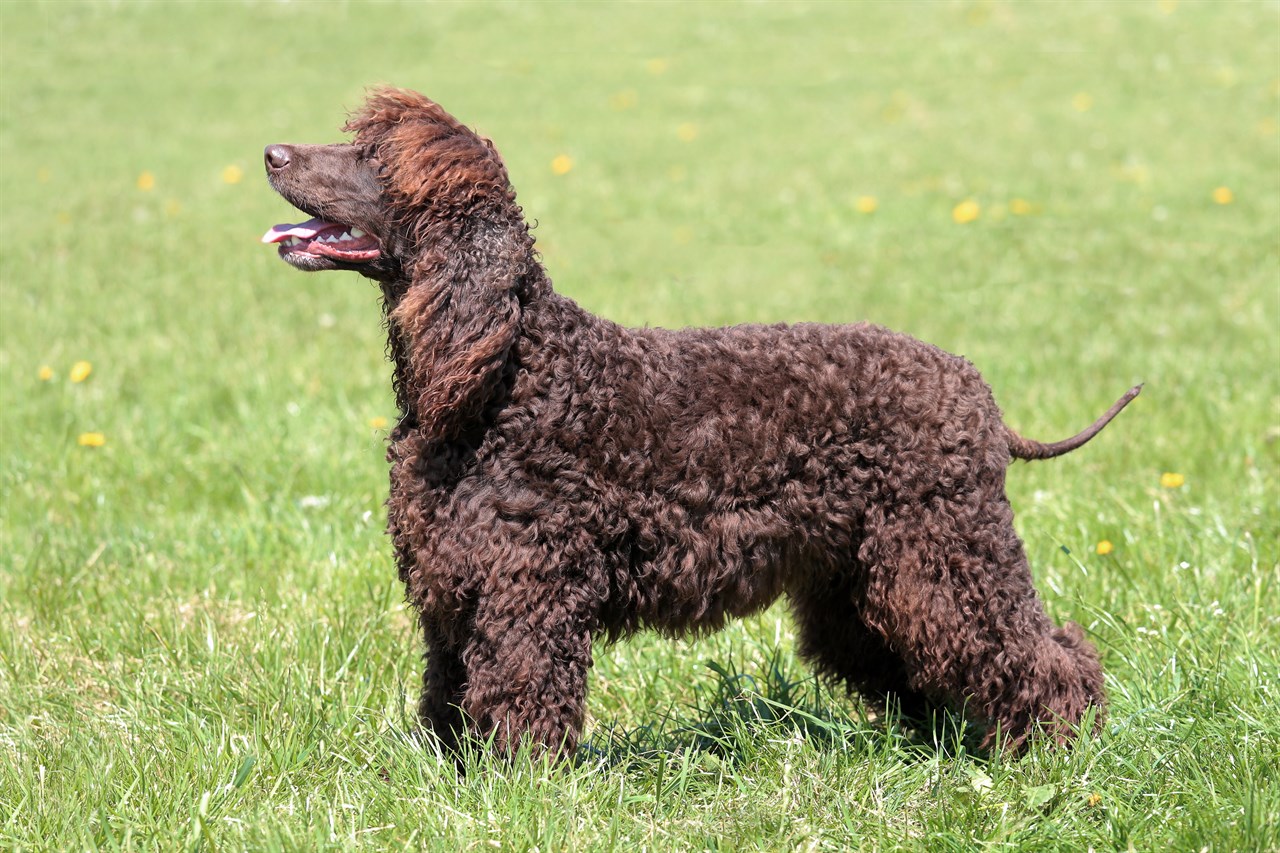Barking Habits of the Irish Water Spaniel

Understanding a dog breed's barking habits is essential for potential owners to ensure they are prepared for the noise levels in their home. When it comes to the Irish Water Spaniel, their barking tendencies can vary, but they generally exhibit moderate barking behaviour. Here's a closer look at their barking habits.
Alert and Protective
Irish Water Spaniels have a natural instinct to be alert and protective, which can lead to barking when they sense something out of the ordinary. They make good watchdogs and will often bark to alert their owners to potential intruders or unusual sounds.
Social Barking
These dogs are social by nature and tend to be vocal when interacting with their human family members. They may bark out of excitement, playfulness, or to seek attention
Separation Anxiety
Like many other breeds, Irish Water Spaniels can develop separation anxiety when left alone for extended periods. This anxiety can manifest as excessive barking as a way to express their distress and seek comfort.
Hunting Background
Remember that Irish Water Spaniels were originally bred as hunting dogs, and barking was part of their job. In the field, they would bark to signal the location of waterfowl they had retrieved. While this instinct may not be as prominent in modern-day pets, it can still influence their barking behaviour to some extent.
Training and Socialisation
Proper training and socialisation from an early age can help you manage and control your Irish Water Spaniel's barking habits. Teaching them commands like "quiet" or "enough" can be useful in kerbing excessive barking when it's unnecessary.
Exercise and Stimulation
Ensuring that your Irish Water Spaniel receives enough physical exercise and mental stimulation can also help reduce excessive barking. These dogs have high energy levels, and boredom can lead to vocalisation.
Environmental Factors
Keep in mind that external factors, such as neighbourhood noise, other dogs, or wildlife, can trigger barking in Irish Water Spaniels. They may react to sounds or sights outside the home, which can lead to barking episodes.
Vocal Communication
It's essential to recognise that barking is a form of communication for dogs. While excessive barking may need to be addressed, it's also important to allow your Irish Water Spaniel to express themselves and communicate with you in a reasonable manner.
Managing Barking Habits
To manage the barking habits of your Irish Water Spaniel, consider the following tips:
- Training: Consistent training using positive reinforcement techniques can help you control when your dog barks and when they should be quiet.
- Exercise: Ensure your dog gets enough physical activity and mental stimulation to prevent boredom-related barking.
- Socialisation: Properly socialise your dog from a young age so they are less likely to react excessively to new or unusual situations.
- Attention: Address separation anxiety through gradual desensitisation and teaching your dog that your departures and returns are routine and non-threatening.
- Create a Quiet Environment: Make sure your dog has a comfortable and secure environment that minimises exposure to external triggers.
- Consult a Professional: If excessive barking persists despite your efforts, consider consulting a professional dog trainer or behaviourist for personalised guidance.
In conclusion, Irish Water Spaniels are known for moderate barking tendencies, and with proper training and attention to their needs, you can manage and control their vocalisations effectively. Understanding the reasons behind their barking and addressing them through training and environmental adjustments can lead to a harmonious living situation for both you and your Irish Water Spaniel.
Irish Water Spaniel puppies for sale
- Find Irish Water Spaniel puppies for sale in ACT
- Find Irish Water Spaniel puppies for sale in NSW
- Find Irish Water Spaniel puppies for sale in NT
- Find Irish Water Spaniel puppies for sale in QLD
- Find Irish Water Spaniel puppies for sale in SA
- Find Irish Water Spaniel puppies for sale in TAS
- Find Irish Water Spaniel puppies for sale in VIC
- Find Irish Water Spaniel puppies for sale in WA